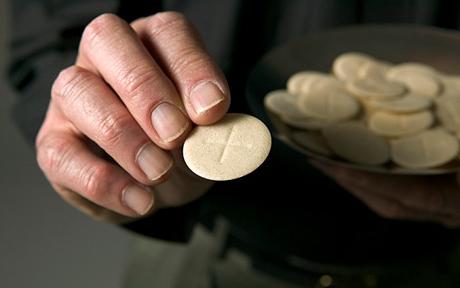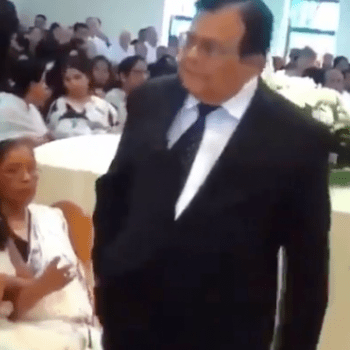Another priest has added his voice to the discussion about the Archdiocese of Washington communion controversy:
A priest who writes on faith and culture emphasized the need to balance respect for the Eucharist with pastoral sensitivity.
“These are delicate matters,” said Msgr. Charles Pope, who blogs about culture and current events for the Archdiocese of Washington, D.C.
He explained to CNA on March 2 that it “requires some judgment on the part of the priest” to apply Church teaching on when to deny Communion to an individual.
On Feb. 28, the Washington Post reported that Barbara Johnson was denied Communion at her mother’s funeral after introducing her lesbian partner to the priest before Mass.
The incident took place on Feb. 25 at St. John Neumann Catholic Church in Gaithersburg, Md., which falls within the Archdiocese of Washington, D.C. Johnson said that Fr. Marcel Guarnizo covered the host and told her that by living in a lesbian relationship, she was sinning in the eyes of the Church.
Canon 915 of the Catholic Church’s Code of Canon Law instructs that those who obstinately persevere in manifest grave sin should not be admitted to Holy Communion.
Msgr. Pope explained that this means the priest must know that the person’s sin is grave, that it is manifest – or well-known – and that the individual in question is obstinate in his or her sin before denying the sacrament.
That generally means that the priest “would need to meet with them privately,” he said.
Conflicting reports make it unclear whether Fr. Guarnizo had warned Johnson upon meeting her partner before Mass that she should not present herself for Communion.
Msgr. Pope said that in his experience, most people do refrain from coming forward for Communion when the circumstances are explained to them.
However, sometimes they do not, he said, and such situations require “prudential judgment” by the priest “in that moment.”
He explained that a priest may have to make an instantaneous judgment when he sees the individual come forward for Communion. Even if the person has already been warned, perhaps he or she did not hear properly or did not understand.
“Right there at the altar may not be the time or the place” to offer a better explanation, he said.











